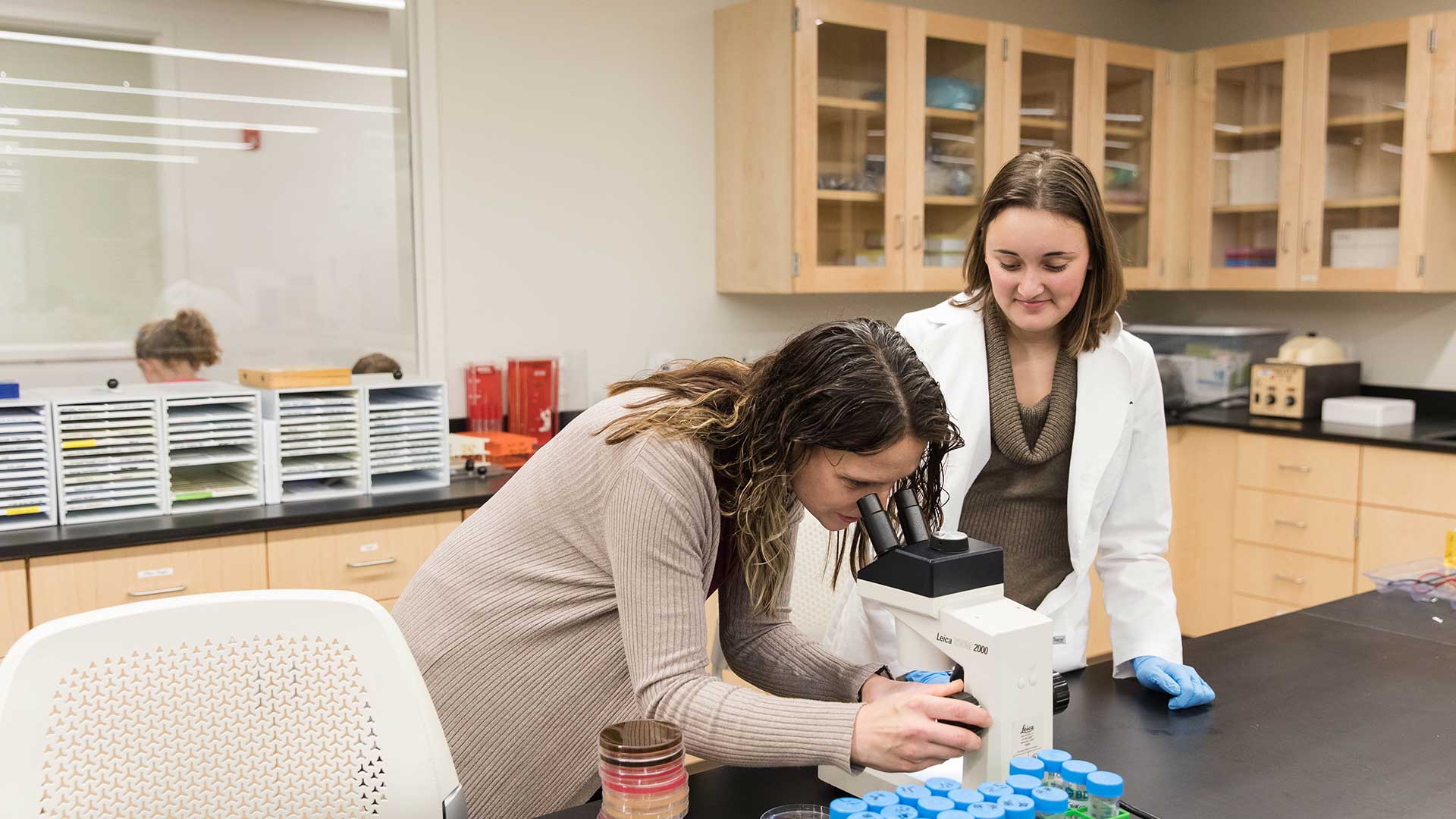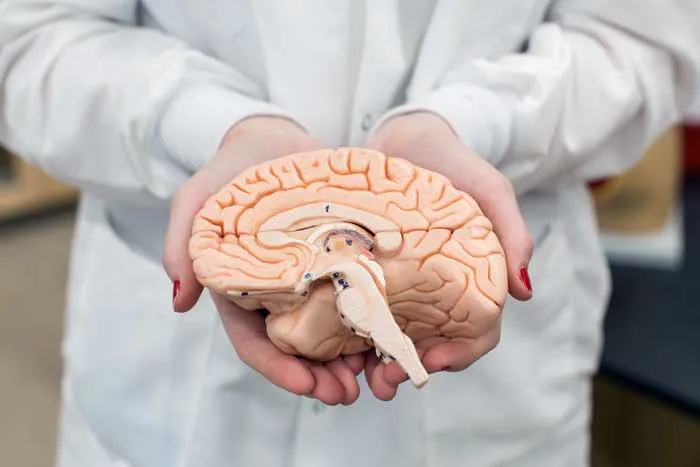
Neuroscience
Salve Regina University's minor in neuroscience explores the brain, nervous system and behavior. Our curriculum is geared toward students planning to pursue graduate study in biology, psychology or neuroscience, or for those with a serious interest in the field.
Study a Multidisciplinary Science
An exciting and forward-looking field of science, neuroscience utilizes the tools and techniques of modern biology to study the structure and function of the brain and nervous system. Students can use their knowledge of neuroscience to conduct Alzheimer's research, study barriers to brain development, quantify the impacts of mindfulness or use computer modeling to study Parkinson's disease.
Neuroscience is considered to be an integrative science of brain, body and emotion. As such, Salve Regina's interdisciplinary program combines coursework in biology and psychology, including cognitive and physiological science.
Program Spotlight: Experiments in Neuroscience
In the laboratory course Experiments in Neuroscience, students use anatomical, physiological, behavioral and neuro-biological modeling techniques to study the nervous system and the brain. They practice basic neuroscience laboratory techniques using living, nonvertebrate animals. Students also design research experiments and learn how to navigate the grant approval process.


Our Faculty
Using a hands-on approach to the exploration of scientific methods, our faculty prepare students for the challenge of exciting careers in the biological sciences. Consistent with the mission of the University, we provide students with the scientific knowledge and ethical understanding necessary for critical and creative thinking, thoughtful and careful analysis and sound judgment.
Life After Salve
Salve Regina's program prepares students for a number of graduate and professional programs in neuroscience, psychology, medicine and health care. Coursework in neuroscience may benefit students pursuing careers in nursing, speech pathology, occupational and physical therapy, audiology, nutrition or social work.
Possible careers include:
- Clinical or experimental psychology
- Dentistry
- Library science
- Medical illustration
- Neurodiagnostic technology
- Pharmacy
- Psychiatry
- Public health research
- Scientific journalism
- Technical or pharmaceutical sales
- Veterinary medicine
As graduate programs in neuroscience vary from school to school, Salve Regina's minor will not necessarily meet all entrance requirements. Neuroscience minors interested in graduate study are advised to carefully review the requirements of their chosen program.
My passion lies somewhere between the theoretical world of psychology and the hands-on approach of neuroscience. Taking neuroscience classes while getting my degree in psychology provided me with a solid understanding of how the human brain works.
Having a well-rounded understanding of the human mind not only makes me more patient and compassionate when working with clients but allows me to help them understand themselves a little better as well. I have found that many individuals living with mental illness are very interested in understanding the neurological basis of their disorder.
Priscilla Villa ’13, research coordinator, Butler Hospital
Minor in Neuroscience
10 courses | 19-21 credits
Prerequisites for biology majors:
- BIO111: General Biology I
- BIO112: General Biology II
- PSY100: Introduction to Psychology
Prerequisites for nursing majors:
- BIO205: Human Anatomy and Physiology I
- BIO206: Human Anatomy and Physiology II
- PSY100: Introduction to Psychology
Prerequisites for all other majors:
- BIO110: Human Biology: Physiology and Health
- BIO220: Cell Biology and Chemistry
- PSY100: Introduction to Psychology
Required courses:
- BIO262: Animal Behavior or BIO284: Hormones and Behavior
- BIO425: Neuroscience
- BIO426: Experiments in Neuroscience
- PSY320: Psychology of Learning and Behavior
- PSY350: Biological Psychology
Students also choose two of the following:
- BCH410: Pharmacology and Toxicology
- BIO325: Human Physiology
- BIO497: Undergraduate Research
- PSY310: Cognitive Psychology